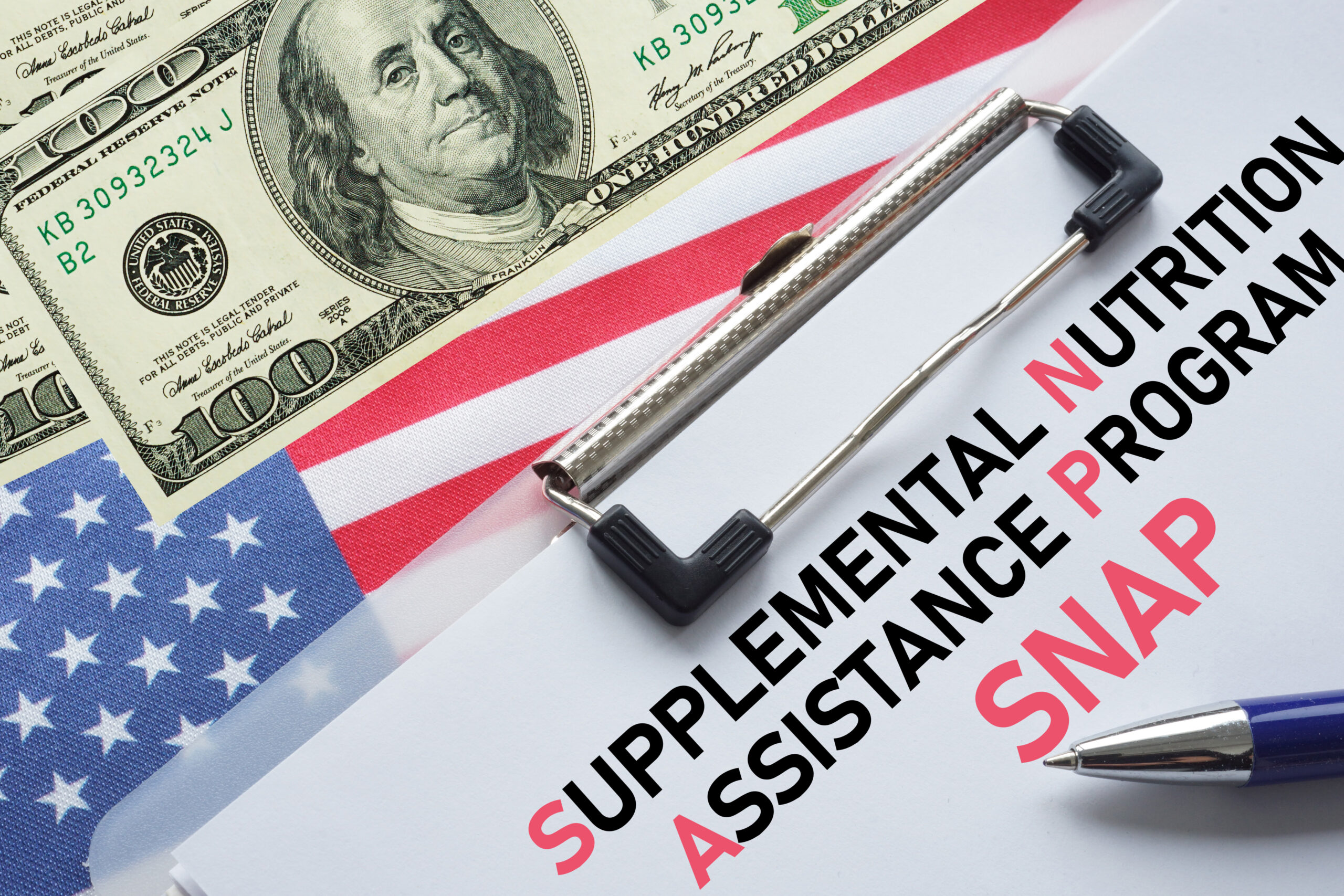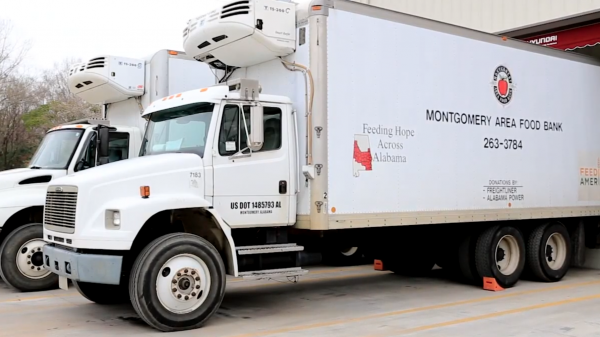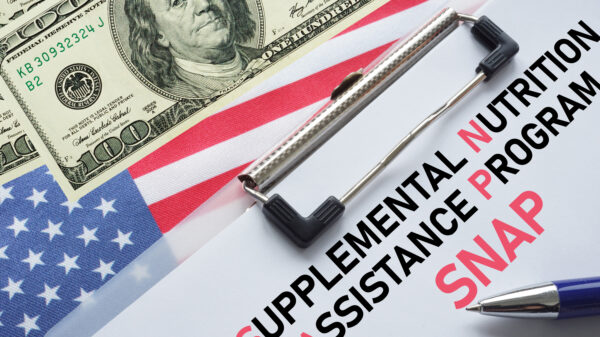Over 750,000 Alabamians depend on benefits from the federally funded Supplemental Nutrition Assistance Program, SNAP, to help pay for their food. Approximately two-thirds of SNAP participants in the state are in a family with children and around two-fifths are in a family with elderly or disabled members according to one report from the Center for Budget and Policy Priority.
Beginning Saturday, Nov. 1, benefit allotments will be suspended due to the ongoing federal government shutdown, the Alabama Department of Human Resources announced earlier this week. This means that while families with electronic benefit transfer, EBT, cards will still be able to use benefits already loaded onto their cards, no new transfers will be forthcoming.
“SNAP benefits are 100 percent federally funded; therefore USDA (FNS) controls the issuance of these benefits on EBT cards,” Alabama DHR Commissioner Nancy Buckner wrote in a public statement.
“This isn’t the first time that the federal government has been faced with a shutdown, but it is the first time that we’ve seen USDA refuse to continue funding programs like SNAP during that process,” Jerome Dees, the policy director for SPLC Alabama, told APR. “And as a result, that decision is going to have devastating consequences on millions of families across the country, including hundreds of thousands right here in Alabama.”
A recent annual report from the USDA found that the average household with children participating in SNAP in 2023 received a monthly benefit of $574, or less than $200 per person per month. Nationwide, 73 percent of SNAP households were under the official federal poverty line.
Laura Lester, the CEO of anti-hunger nonprofit Feeding Alabama, explained during an interview with APR on Thursday that the suspension of SNAP benefits will be an “unprecedented disaster.” She compared the need people will have for additional assistance to the aftermath of a hurricane, except spread across the entire country.
“We always try to explain to folks that for every nine meals that SNAP provides, [food banks] provide one,” Lester said. “SNAP is the most effective and efficient way to feed folks. Anytime there’s even a slight change in SNAP, we see a huge increase in demand at our food banks.”
“We never wanna lose sight of what this means, and I just want people to know that thousands of Alabamians will go hungry and there will be missed meals, particularly by parents trying to save every bit of food they have for their children,” Lester told APR. “Honestly, this is what keeps us up at night and we just don’t know what’s gonna happen.”
LaTrell Clifford Wood, a hunger policy advocate with the progressive nonprofit Alabama Arise, also emphasized that the effects of the suspension will be “felt immensely” by hundreds of thousands of Alabamians, while connecting the suspension to the wider changes in SNAP that have been occurring.
“The overarching trend is that we are seeing a continued effort to compound the impact of one of the largest transfers of wealth that we’ve seen in this country, to take from people who are children, people with disabilities, our neighbors who are immigrants or even our own veterans to line the pockets of the wealthiest 1 percent of the country,” she stated during a phone call on Wednesday.
“What we’re seeing right now is sort of a preview of the SNAP cuts that are still being implemented as a result of the One Big Beautiful Bill Act,” Wood added.
Beginning in the 2027 fiscal year, Alabama’s share of the administrative costs for SNAP will increase by 50 percent, and the state may be required to cover a share of benefits costs depending on its payment error rate. Members of the state legislature were already shocked by the DHR’s tentative projections at an August committee meeting.
LaShawn Warren, the chief policy officer for the SPLC, wrote in a statement on Wednesday that “the SPLC is calling on the governors of Alabama, Georgia, Florida, Louisiana and Mississippi to step-in and feed families in these crucial times when the federal leaders in power are willfully choosing not to do so.” Dees explained to APR what that could look like in Alabama.
“First, the state should use all resources at its disposal to ensure a continued supply of resources to our local food banks as well as preparing for a rapid reissuance of benefits whenever the shutdown ultimately ends,” he said. “Secondly, the state can ensure that the Department of Human Resources and Department of Public Health are monitoring instances of food insecurity at the local level in real time to make sure that the families in the hardest hit communities are getting what they need.”
“And finally, I’d say that the governor and our legislators should be using their platforms to call on Washington and specifically the USDA to release the billions that are already set aside in contingency funding to keep SNAP operating,” Dees stated.
Earlier this week, Bryce Covert reported for the American Prospect that the March 2024 law funding SNAP specifically designated the contingency fund “for use only in such amounts and at such times as may become necessary to carry out program operations.” The 2008 law reauthorizing SNAP also mandated that all eligible households who apply should receive benefits.
Over two dozen states filed a joint lawsuit against the USDA, the Secretary of Agriculture, the Office of Management and Budget, and OMB head Russell Vought on Tuesday. The suit highlights that a September 30 Lapse of Funding Plan published by the USDA described Congressional intent for SNAP to continue during a shutdown as well as the availability of contingency funds for that very purpose.
Louisiana and Virginia, both states with Republican governors, have moved to use state funds to help families that will be affected by the suspension of benefits. “The Commonwealth will provide food benefits until Congressional Democrats put the interests of Virginians in need ahead of their politics,” Gov. Glenn Youngkin, R-Virginia, wrote in a statement on October 23.
Alabama Governor Kay Ivey, though, has rebuffed calls from Democratic members of the state Senate for her to call a special session to help alleviate the effects of the suspension on Alabama families.
In response to questions from APR about the governor’s decision not to call for a special session, the governor’s communications director, Gina Maiola, sent the following statement: “As Alabama DHR noted, SNAP benefits are 100 percent federally funded, and therefore, U.S. Food and Nutrition Services controls the issuance of these benefits on EBT cards. While the state does not have extra money to do Congress’ job, Governor Ivey hopes to see U.S. Senate Democrats get on board to reopen the federal government” [emphasis in original].
Alabama Senator Katie Britt cosponsored the bipartisan “Keep SNAP Funded Act” earlier this week, a two page bill which would authorize funding for SNAP during the shutdown. Congresswoman Terri Sewell, D-Ala., has also been a vocal proponent of keeping SNAP funded and signed an open letter earlier this month demanding the Trump administration tap its contingency funds.
However, Senate Majority Leader John Thune, R-South Dakota, announced on Wednesday that a Democratic bill to keep SNAP and similar programs funded would be blocked by Senate Republicans. He called the bill a “cynical attempt to buy political cover for Democrats,” Politico reported.
The lead sponsor of the Keep SNAP Funded Act, Sen. Josh Hawley, R-Missouri, also said that his bill won’t be fully supported by Republican leadership. As a result, it appears unlikely that additional SNAP funding will be approved in the immediate future, before Alabama families begin to adjust their budgets and seek out additional aid in order to make ends meet.
Asked how Alabamians should help people in their communities affected by the upcoming suspension, Wood said people should talk with their friends and neighbors and “if you are somebody who has means, offer a meal.”
“But on an organization level, when it comes to contributing to your community, it’s really important, now more than ever, to donate to your local food bank,” she explained. “Our food banks have greater buying power than most of the public simply because they can buy wholesale, so their dollars go a lot further.”
Wood also stressed that DHR will still be accepting applications for the program and that any families subject to any paperwork requirements should ensure they are still complying with those.




















































